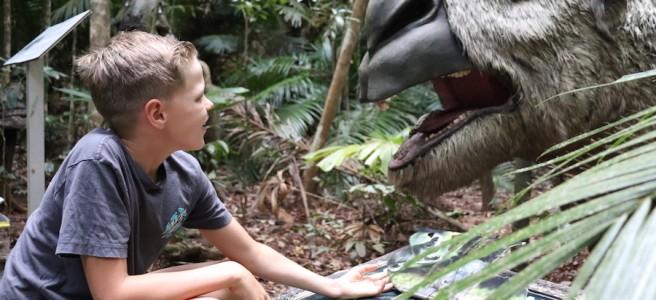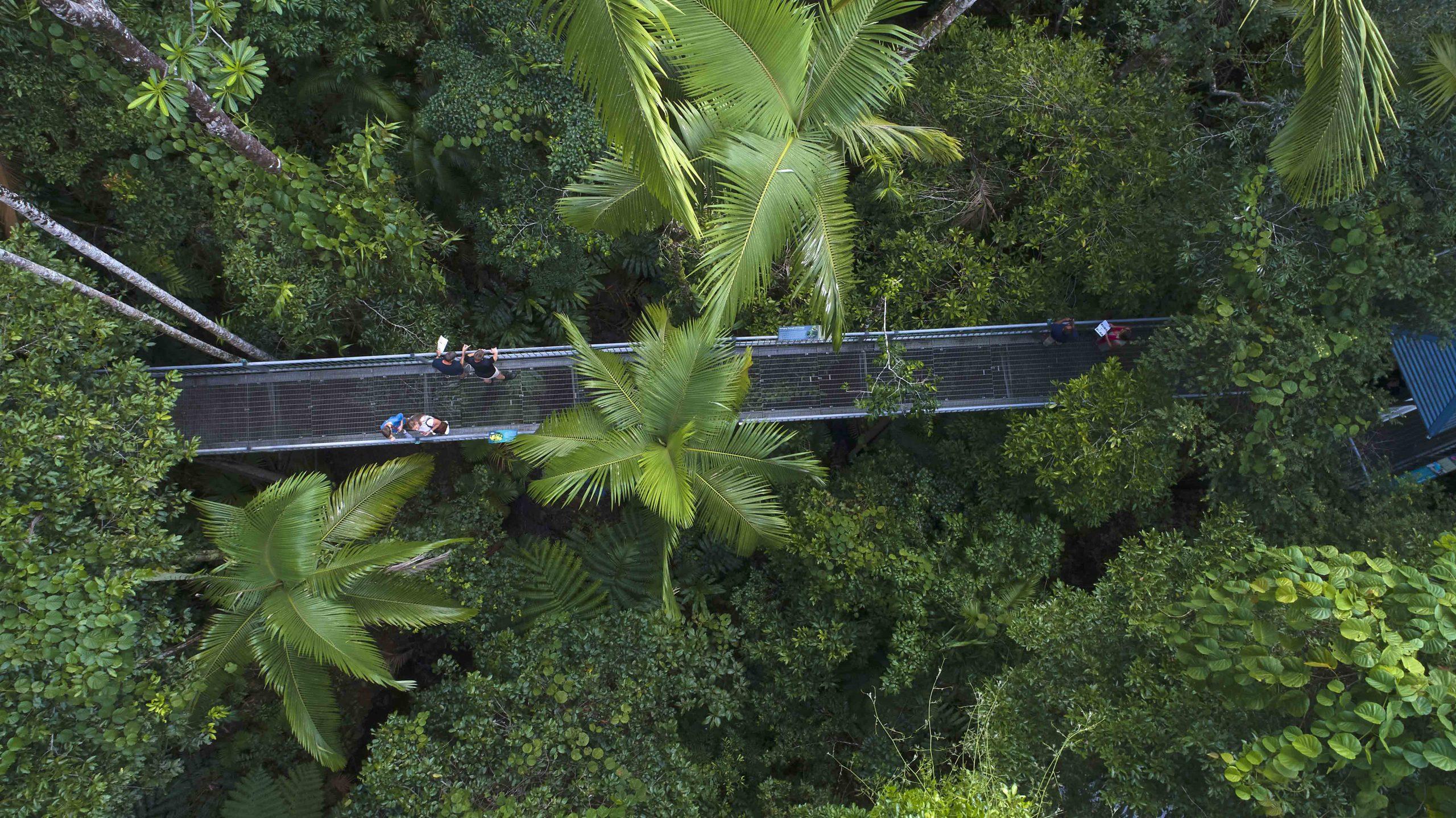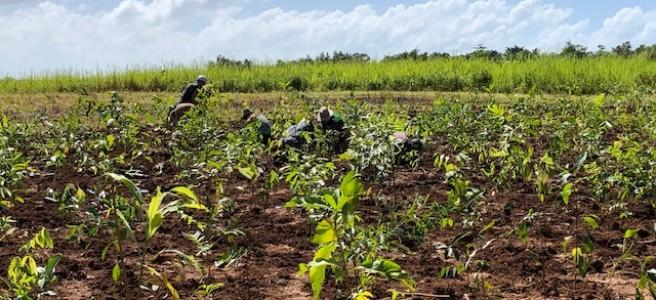×
×

This nocturnal snake powers-up for the night by poking out just its black head to absorb the sun’s energy.
Description: This python is one of the most distinctive in appearance with its shiny black head and yellow to beige coloured body, striped with orange to brown bands.
Diet: The Black-headed Python is a carnivore and feeds on small mammals and reptiles.
In the wild: Instead of basking in the sun to warm its body and exposing itself to predators, the Black-headed Python only protrudes its head out of its burrow. Its black head acts as a solar panel and heats its entire body. Like other pythons, this nocturnal snake kills its prey by coiling around and suffocating it.
Threats: Black-headed Pythons sometimes lay on the road to absorb the heat from the surface and are often killed by unaware drivers.

Daintree Discovery Centre manager Abi Ralph said the team had been busy over the Covid closure period designing and working with experts to better tell the story of the rainforest and its inhabitants and of Gondwana’s ancient legacy.
“We are thrilled with our cool new signage and are sure our visitors will appreciate it too. It provides a more immersive and engaging experience with succinct and easily understood facts and interesting information,” Ms Ralph said.
“Wonderful interactive signage has been installed along the Aerial Walkway, the Canopy Tower and the Jurassic Forest exhibit. They include colour-coded spinning totems that focus on local mammals and canopy birds. These are hands-on information stations designed to appeal to our younger visitors.
“Our dinosaur Jurassic Forest, has also been updated with 3D effects, sound, sliders and a spinning globe.
“We are delighted that the improvements have been completed and the Centre is back to operating as normal, ready to welcome visitors wishing to experience and understand the Daintree Rainforest and how it works.”

Brian Arnold, group general manager of Aboriginal Development Benefits Trust, which owns Daintree Discovery Centre, said continued investment helped to keep the product experience fresh and maintain the Centre’s position as a must-do activity for visitors crossing the Daintree River.
“Daintree Discovery Centre is recognised as a leader in ecotourism and environmental conservation and maintaining that role is a keen focus of our investment activity, particularly in these difficult times,” Mr Arnold said.
For Daintree Discovery Centre opening times, visit www.discoverthedaintree.com.

This year marks the 18th year that Australia’s largest remaining rainforest – and the oldest tropical lowland rainforest in the world – has benefitted from the relationship between the rainforest reviver and the education centre.
The annual donation to Rainforest Rescue reflects the importance and growing interest from the visiting public in sustainability, in line with Daintree Discovery Centre’s environmental ethos.
Daintree Discovery Centre manager Abi Ralph said she was delighted the amount of this year’s donation was only slightly less than last year despite the lengthy closure to the public because of Covid-19 health and safety restrictions.
“Centre visitors gave $542.40 via our collection tins and the Centre matched this with a $542.40 donation,” Ms Ralph said.
“The balance of this year’s donation to Rainforest Rescue was made up of $336.50 from recycled bottles and cans, $1322 from a donation of 50 cents per takeaway cup and $15.35 from a donation of five cents per bag of ‘cassowary poo’ sweets bought at the Centre.
“As well as being a delicious confection and a novel memento of a visit to Daintree Discovery Centre, the ‘cassowary poo’ sweets help reinforce the importance of this ancient and amazing bird in helping to grow the rainforest through spreading the seeds of rainforest species in its droppings.”
Ms Ralph said Branden Barber, chief executive of Rainforest Rescue, had described the partnership with the Daintree Discovery Centre as pivotal to spreading the word on the uniqueness and importance of the Daintree as the world’s longest and continuously existing and evolving rainforest.
She said the symbiotic relationship with Rainforest Rescue reflected the importance between education, through the Centre’s immersive rainforest walks and accompanying exhibits and displays, and Rainforest Rescue’s regenerating and caring for the overall growth and wellbeing of the rainforest.
The annual donation from the Daintree Discovery Centre helped Rainforest Rescue with its local nursery, seed collection and plant propagation to produce more trees to grow more rainforest.
Rainforest Rescue raises more than 20,000 plants locally from more than 200 species annually. The group has been protecting and replanting rainforests since 1998.
“We are proud to continue our association with such a committed, effective and valuable organisation and to know that our work here at the Centre in entertaining and educating our visitors is helping to make such a difference through our support and annual donation.”